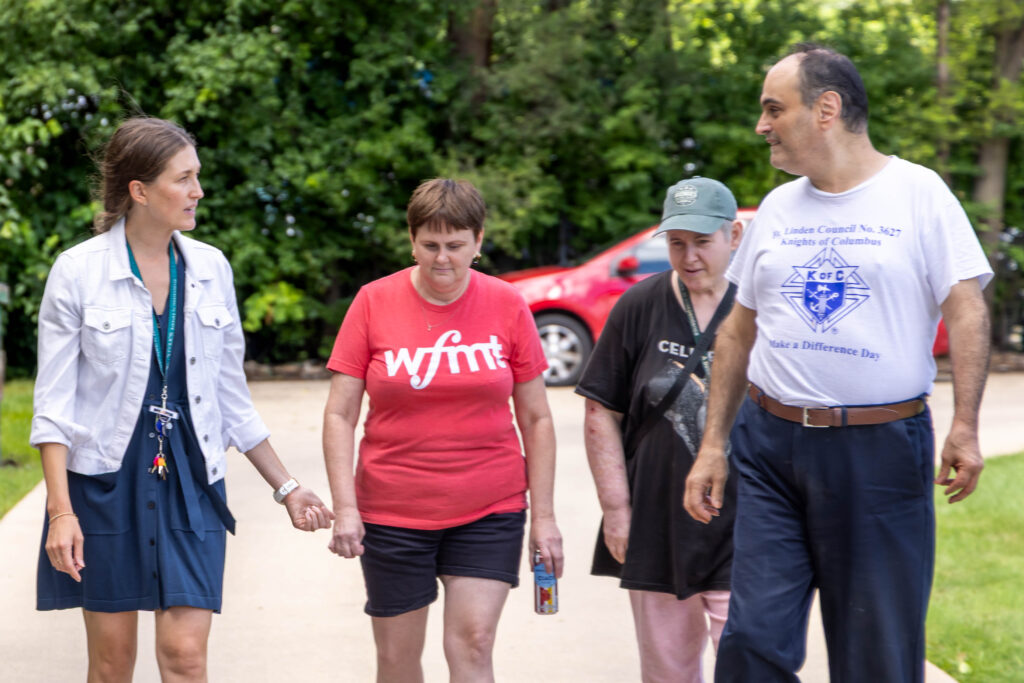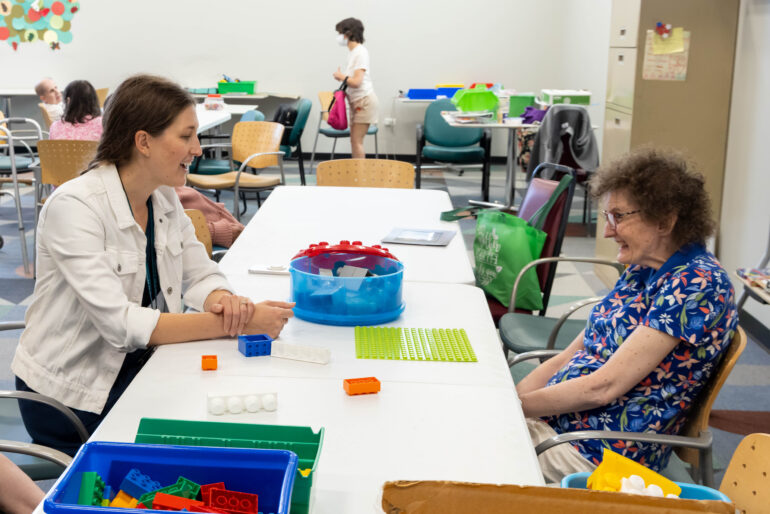Anyone who has ever tried to schedule a specialist appointment, make sense of a medical bill, or advocate for a loved one in the hospital knows how challenging America’s healthcare system can be. It’s a maze of forms, follow-up calls, insurance approvals, and costs that pile up.
When things get more complex, it can be overwhelming, and for some people, life-threatening. What happens when someone faces that same maze, yet takes 12 medications a day? If they have multiple diagnoses? If they rely on a rotating staff of caregivers to administer those medications and manage your appointments? Navigating all of this while also living with an intellectual or developmental disability may even require a team of people to help them make sense of it all.
Helping Individuals Navigate the Healthcare System
At Avenues to Independence, these scenarios aren’t an occasional reality. They’re a part of daily life. Avenues’ residential clients take an average of 12 medications daily, with most requiring staff-administered doses three times a day.
The Park Ridge-based nonprofit supports more than 250 adults with intellectual and developmental disabilities. Many live independently in Avenues residences, hold jobs, and participate actively in their communities. But with age, their medical needs grow more complex. As a result, the organization’s care system, and the healthcare system in general, must grow with them.

According to the Journal of Intellectual Disability Research, 80 percent of adults 65 and older with Down syndrome show signs of dementia. The Journal of Intellectual Disability Research also finds that people with intellectual and developmental disabilities are two to three times more likely to develop diabetes.
“In my nearly 40 years at Avenues, I’ve seen our clients’ needs evolve dramatically,” says Joni Kraft, Avenues’ Program Director. “Our clients are living longer, which is wonderful, but it also means we’re seeing more age-related health challenges like Alzheimer’s, diabetes, and heart disease.”
These trends reflect what disability-support organizations nationwide are seeing, as adults with intellectual and developmental disabilities live longer and their medical and behavioral needs become more complex.
On One Nurse’s Shoulders
Right now, everything related to the health challenges of Avenues’ clients falls on the shoulders of just one RN, Erin Kalaway. She is currently Avenues’ Director of Clinical Services and is on call 24/7.
“My days can include anything from training staff on seizure protocol, to calling a pharmacy about a new prescription, to walking with a client who needs more exercise,” says Kalaway. “Sometimes I’m at a doctor’s appointment. Other times, I’m helping a client learn how to make healthier food choices. It’s all connected.”
Kraft has seen the same dynamic play out again and again. “When a client ends up in the ER or urgent care, there’s a whole cascade of follow-up care. Whether it’s coordinating with doctors, pharmacies, and families, Erin’s there for all of it. But as our client base grows, we know one nurse isn’t enough.”
Introducing the Clinical Services Program
To help relieve some of Kalaway’s workload and provide more proficient and expansive healthcare services to clients, Avenues is launching a new Clinical Services Program. This program is a comprehensive healthcare plan to expand the nursing team and add dedicated care coordinators for follow-ups and appointments, and explore bringing occupational and physical therapy experts in-house. The future vision also includes investing in new health technologies such as fall detection devices, Bluetooth-enabled blood pressure cuffs, glucose monitors, and other tools to help staff spot and address issues earlier.
The program’s urgency is underscored by another reality: people with Down syndrome face a disproportionately high risk of early-onset Alzheimer’s. “We start dementia screenings in our clients’ early 50s,” says Kraft. “We’ve learned to watch for subtle changes like a new seizure disorder, unsteady gait, shifts in behavior. The earlier we can intervene, the longer we can help someone maintain their independence.”

That’s why Avenues’ Clinical Services Program matters so deeply. It’s not just about keeping up with medications, doctor visits, and state-mandated paperwork. It’s about making sure no one falls through the cracks. It’s about recognizing that healthcare is more than treatment. It’s also advocacy, education, prevention, and human connection.
Investing in Health, Investing in Lives
While Avenues receives some state and federal funding, it isn’t enough to cover the Clinical Services Program expansion. Hiring just one additional full-time RN, for example, costs nearly $90,000 annually.
In addition, America’s healthcare system isn’t getting simpler anytime soon, especially as recently passed federal legislation aims to significantly cut Medicaid, a significant support system for the individuals we serve. It’s a reminder of how valuable integrated, whole-person care models can be in navigating a fragmented healthcare system.
“We’ve always been client-centered,” says Kraft. “If budgets get tight, we cut back in other areas before we cut care. But without community support, we can’t grow the way we need to.”
In a country where healthcare often feels impersonal and inaccessible, Avenues is proving that it can be personal, proactive, and full of dignity.
“We’re always looking for ways to help our clients live the fullest life they can,” says Kalaway. “That means meeting them where they are, whether that’s in a doctor’s office, in their home, or on a walk around the block.”
This post was submitted as part of our “You Said It” program.” Your voice, ideas, and engagement are important to help us accomplish our mission. We encourage you to share your ideas and efforts to make the world a better place by submitting a “You Said It.”
How to Help
Avenues to Independence empowers adults with intellectual and developmental disabilities to live quality lives through personalized support, advocacy, and community engagement. Donations support Avenues’ programs and services aimed at creating meaningful opportunities for adult clients.

Stephen Kray is the President and CEO of Avenues to Independence. Avenues is a private, not-for-profit agency that serves Chicago-area adults with developmental disabilities. Stephen has worked for Avenues for 14 years. He lives in Arlington Heights with his wife and two young daughters.

